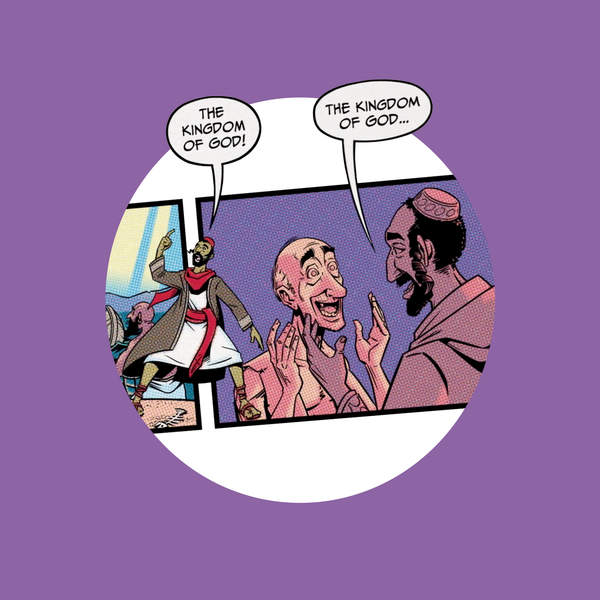
Poetry Q+R
Here is our question and response episode where we answer our listeners' questions about poetry and metaphor in the Bible.
Episode Chapters
Show Notes
This is our Poetry and Metaphor Q+R! Thank you to everyone who submitted questions. We responded to seven questions: (1:20) Ivan from El Salvador - “How do you identify poetry? For example, in Genesis 1, some people say Genesis 1 is poetry, some people say Genesis 1 is actual history. How can you identify if it's poetry? I know there's a lot of poetry in the Bible, and there's also a lot of narrative.” (14:45) Chris from Illinois - “You talk about the metaphor of time as a possession and used it as an example of a modern metaphor, then you say that the Bible doesn't view time in this way. However, in Psalm 31:15 David says, "My times are in your hand," and in Ephesians 5:16 Paul writes, "We should redeem the time." Don't these phrases suggest that both David and Paul view time as figuratively, as a tangible and valuable possession?” (21:55) Jackson from San Luis Obispo, California - “Can you provide a short list of other commonly used metaphor schemes throughout the Scriptures? Sort of like the base layer metaphors to have in my mind while I'm reading through Scripture. I think this would be very beneficial.” (29:45) Tyler from Vancouver, Washington - “You talked about how the biblical authors are using metaphoric imagery to describe the abstract ideas of the new heavens and the new earth, and it seemed like you were talking about that in regards to Eden and Creation. So my question is: Should we think about things like Eden and the new heavens and the new earth as symbolic places, or are they actual real places? And if they are, how do we understand them if the imagery is metaphoric as opposed to descriptive?” (35:25) Kerrie from Australia - “Christians consider the Bible a book that influences the way we live. In the realms of creativity, how should biblical poetry influence Christians today in their writing and creative writing?” (39:30) Clayton from Alabama - “Your conversation about metaphors seem to include a painstaking process of proving and affirming the driving metaphors and schemes that you've focused on. Are there any "guardrails" you suggest for communities of lay people, like college students, that may discover schemes beyond the two that you mentioned, or is there a list or a resource that could serve or help us catch these essential schemes as we engage Scripture?” (42:35) Maggie from Wisconsin - “Can you share any other stories from the New Testament that continue the metaphors that were covered in the Old Testament? Thanks!” Thank you to all of our supporters! Check out everything we're up to at thebibleproject.com
Produced By:
Dan Gummel, Jon Collins, Matthew Halbert-Howen
Scripture References
Referenced Resources
- Our video on poetry: https://www.youtube.com/watch?v=q9yp1ZXbsEg
- "The Name of a Rose" by Umberto Eco
- "More Than Cool Reason: A Field Guide to Poetic Metaphor" by George Lakoff and Mark Turner
- "Metaphors We Live By" by George Lakoff and Mark Turner
- "Seeing the Psalms: A Theology of Metaphor" by William Brown
Interested in learning more? Check out Tim's library for a list of recommended books and other resources.
Get the BibleProject app for access to our entire library of resources in one place.